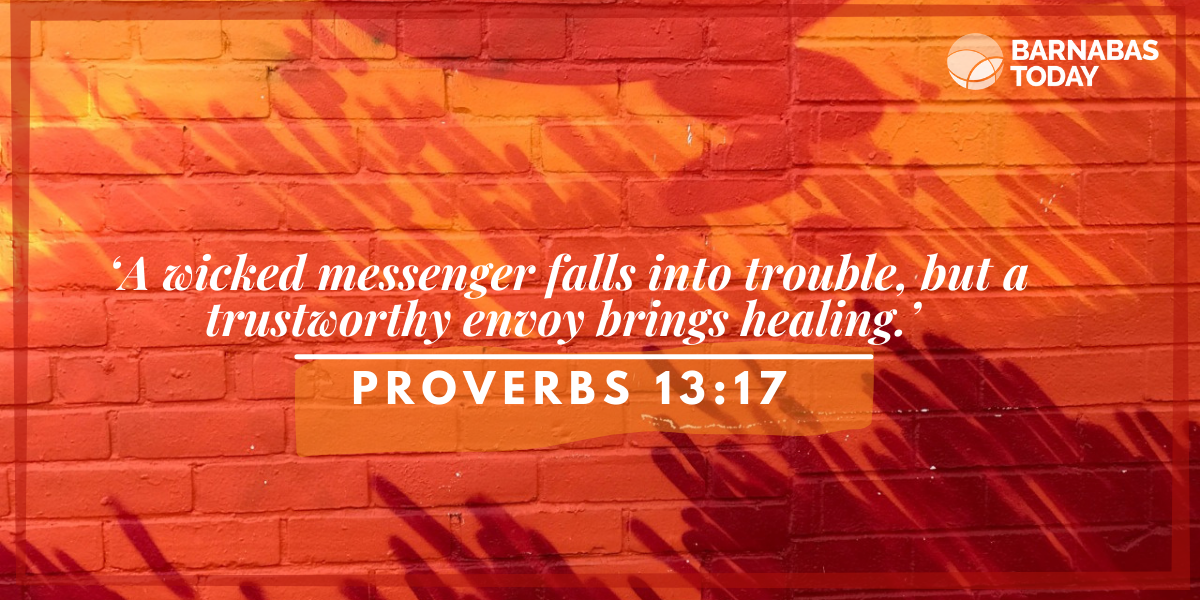
‘A wicked messenger falls into trouble, but a trustworthy envoy brings healing.’ (v17) Proverbs 13:10–20
The word ‘wicked’ entered into the English language around 1200. An adjective from wicca, the Old English for ‘wizard’, it meant ‘bad or false’. Bad means unsatisfactory, whilst false means lying intentionally. In Christian usage, it meant someone who was not of the Christian faith.
These are obviously adjectives we do not want to describe us. We can, of course, pull the wool over people’s eyes, itself an idiom for deceit and untruth, but the deposit we leave in relationships and situations is dis-ease. In other words, we prevent things from functioning as they should; preventing success and doing harm.

It’s why truth is essential for trust-building, for without trust there is no confidence and little can be achieved. Whilst we see so many apparent successes built upon what later proves to be a corrupt foundation, God is to be trusted. His Word is forever trustworthy.
Our model is Jesus, who knew when to keep silent and, when He did speak, reiterated the foundational truths upon which the good, or God, life might be confidently established and built. As God’s ambassadors, we must remain above reproach. Where we make mistakes, we are to be swift to acknowledge them to all who have suffered as a consequence. Truth-telling is an act of the will and a way of life; it constructs the paving stones for God’s way.

RELATED SCRIPTURE TO CONSIDER: Psa. 15; Luke 16:1-14; 1 Pet. 3:8-18; 1 John 1:5-7.
AN ACTION TO TAKE: Are you trustworthy? What can you do to build trust both within and outside the church?
A PRAYER TO MAKE: ‘Lord, I choose to be transparent with You and seek advice and support where I struggle with my Christian witness. Amen.’
Photo by Gadiel Lazcano on Unsplash | Photo by fauxels on Pexels









